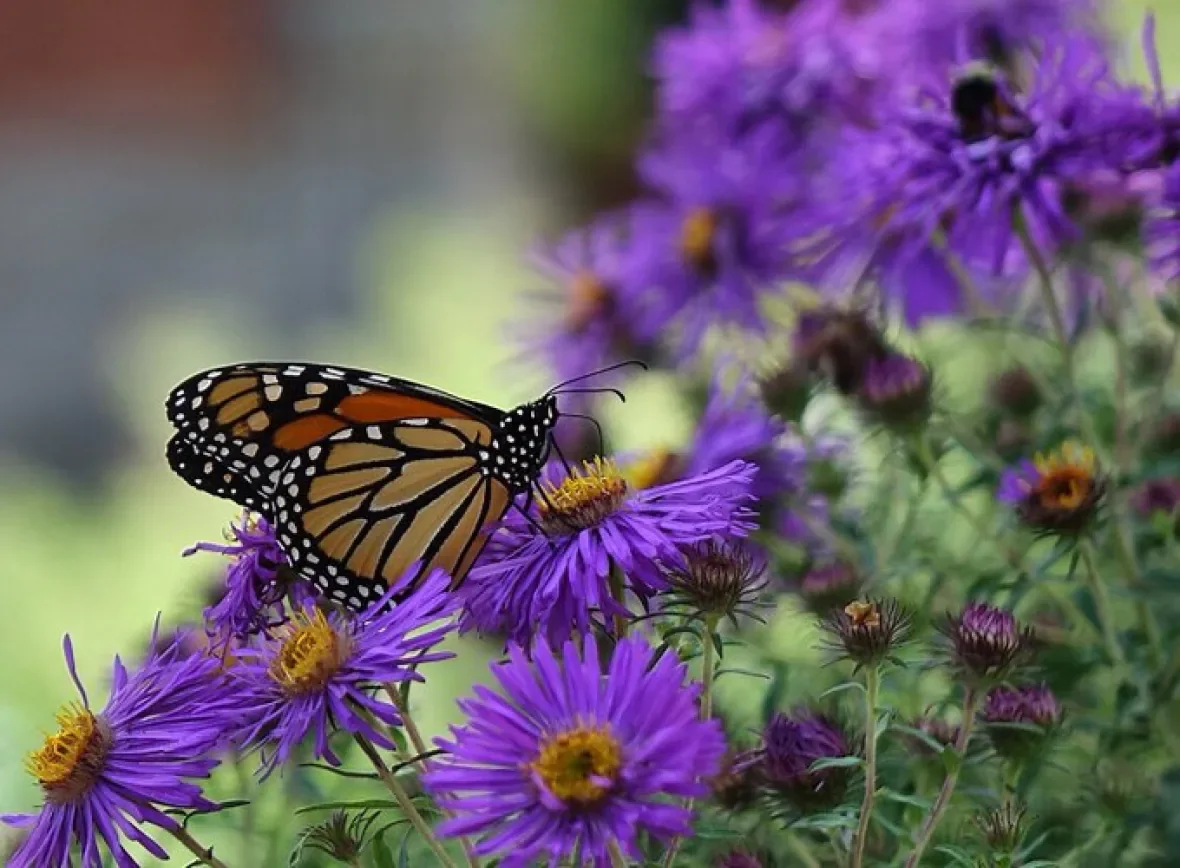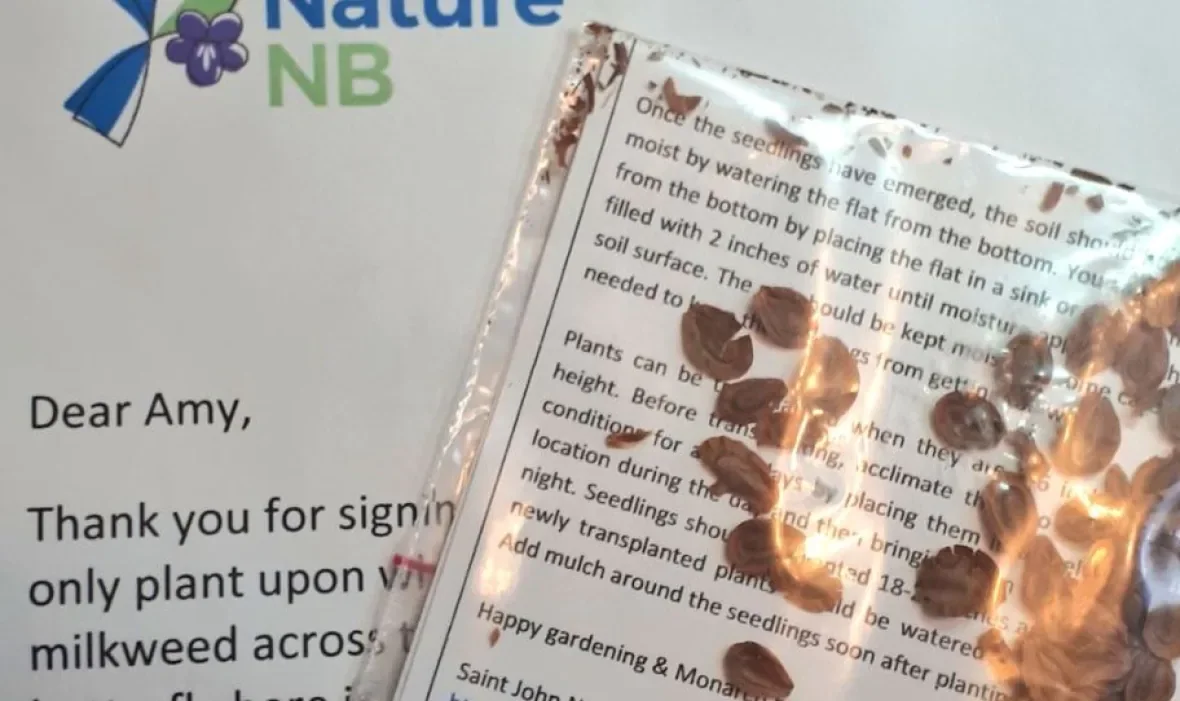
Supporting New Brunswick monarch butterflies with milkweed
Growing milkweed in your garden is one way homeowners can help monarch butterflies thrive.
Monarch butterflies are diet-specialists, and their caterpillars are only able to feed on native milkweed plants, says Steve Heard, a professor of biology at the University of New Brunswick.
SEE ALSO: Waterproof flashlights for emergencies and everyday use
Hear said an initiative by Nature NB, which allows New Brunswickers to sign up online to receive a package of free swamp milkweed seeds to grow at home, is a great program.
"It'd be lovely to see this place at the northern end of the range be more supportive for them, perhaps as climate changes, monarchs will be able to move a little bit and use our area more extensively," said Heard. "To do that, they have to have access to milkweed."
Milkweed is the only plant monarchs will lay their eggs upon.

Gardeners can plant flowers, like asters, for monarchs to take nectar from, fuelling their migration to Mexico. (Ian Black/CBC)
There are two types of native milkweed in New Brunswick, said Heard, common milkweed and swamp milkweed. Common milkweed is sometimes viewed as a noxious weed by farmers, said Heard, because when it is baled with hay, it can have some toxicity effects on the animals that eat the hay.
"Outside of potential toxicity in hay, they're not harmful plants," said Heard. "They have quite a bad toxin in them, but it's not the kind of thing you're likely to take a big bite out of, so nothing to worry about there."
Heard said the toxin in milkweed is the reason monarchs have evolved into a specialist species. The monarch takes on the toxin from the milkweed and therefore, birds won't eat them.
Moncton resident Amy Wilbur posted on Twitter after receiving her pack of seeds in the mail. She said she follows a lot of conservation and nature-based accounts on social media which is how she found out about the free seeds.

Moncton resident Amy Wilbur posted on Twitter after receiving her pack of swamp milkweed seeds in the mail from Nature NB. (Amy Wilbur)
"I'd already been thinking about picking some up at like a garden store or something," she said.
She hasn't planted the seeds yet since the package it comes with says to wait until autumn to plant them or start them in the fridge during winter.
Wilbur said some people might not know "how easy it is to help the butterflies."
She hopes planting the free seeds can help improve the monarch butterfly population, which is currently endangered.
Heard said the decline in population is due to habitat loss, exposure to pesticides and loss of milkweed.
He sometimes worries people will plant milkweed in their yards and give up if they don't immediately see monarch butterflies.
WATCH: Monarch butterflies are now officially endangered
Heard said it might take awhile for monarchs to find the plants.
"Even if they don't, you still got the milkweed, which is beautiful," he said.
Heard said planting milkweed isn't the only thing gardeners can do to help monarchs.
Since they are migratory, flying to Mexico each winter, Heard said they require lots of energy for the trip.
To get this energy, they take nectar from blooming flowers in the fall, which gardeners can plant. Heard said these include asters, goldenrod and black-eyed susans.
"Having lots of late flowering things in your garden [is] also great for monarchs."
The story, written by Hannah Rudderham, was originally published for CBC News.










